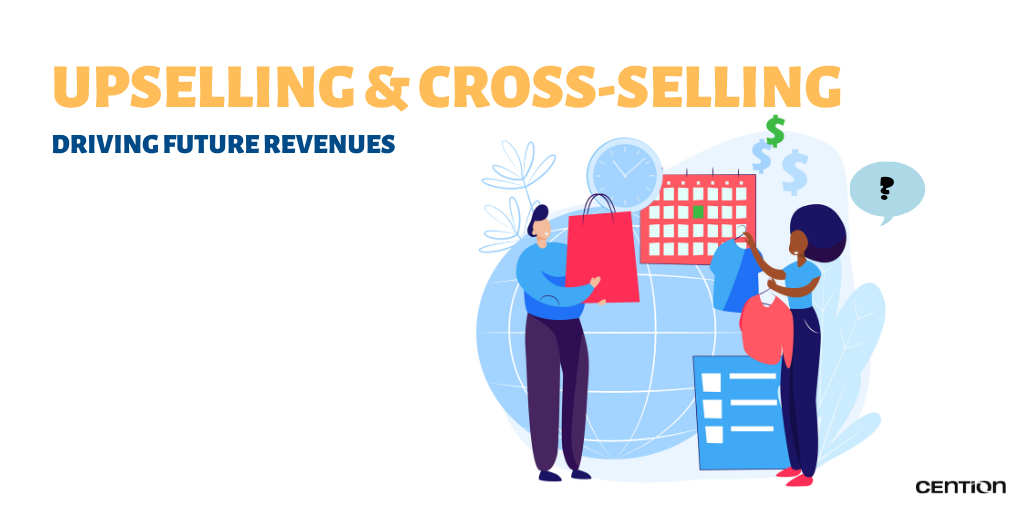“Would you like to add fries with your burger?”. You must have been asked this question at least once in your life as it is a classic example of cross-selling – selling a different service or product to customers. On the other hand, upselling is to encourage customers to purchase an upgrade for their initial purchase. Instead of asking if you would want to add fries with your burger, the server will ask if you’d like to upgrade your burger to a deluxe supreme burger, because why not. Let’s see why both upselling and cross-selling is important for businesses to thrive.
Why are Upselling & Cross-Selling Important?
Both of these are very effective methods to support business growth. A study by Gartner group found that cross selling and upselling to existing customers contribute to 80% of a business’s future revenue. It is easier to talk with existing customers as they tend to have higher response rate compared to new customers. On top of that, customers will feel more satisfied when they know more suitable products that suit their needs.
With the right timing and techniques, customers can be acquired from different markets for any types of businesses. Here are a few tips that can help you to start cross-selling and upselling to your customers and convince them that buying more will help them to save even more!
Start Upselling & Cross-Selling with Your Best Customers
Start with your best customers based on their buying records. Ask these questions; what are their preferences? What have they bought recently? What do they think about the level of service they’ve received? When you are able to collect all necessary information, you can start coming up with strategies and figure out the best methods to approach your customers.
It is important to train your customer service agents to limit cross-selling or upselling to only a few items. Get feedback from your customers about suggestions for products they would like to receive and make your efforts accordingly.
After all, bombarding your customers with too many cross sell and upsell suggestions can make you seem like that one relative everyone tries to avoid because they keep asking annoying questions during family gatherings.
Demonstrate Value
Sometimes you’ll notice promoters at supermarkets who will approach you with free samples of the product that they are selling. If you like the sample, maybe the product will end up in your shopping cart. If you don’t, at least you have enjoyed some free food.
Offering trials or demos and discount programs are effective methods to cross-sell and upsell. They help businesses to tear down the initial doubt or resistance that customers may have towards your product.
Discount and incentive programs or loyalty perks allow businesses to figure out the best ROI for both customers and themselves. It enables customers to benefit from structured opportunities to earn perks based on their buying patterns, which enhances their experience when using your services!
It’s also an opportunity for businesses to convince their customers that the more they spend, the more they can save.
Bundle Them Up
Truth be told, making a decision to buy something can be nerve wracking. Especially when it involves items that could cost more than the person’s monthly salary. But, here’s where businesses can step in to ease customers’ anxiety.
You can put a few other items that might be relevant to the customer. For instance, if a customer is buying a digital camera, you can include complementary items such as a tripod, an additional SD card, or even a bag for their new camera along with their original purchase.
The price would definitely be higher than the initial price, but they would save a lot more with the bundle purchase. With proper communication, you can help them see why they need the complimentary items and how they can benefit from purchasing the bundle instead of the lone item.
Plus, you’ll get to help your customer to lessen the actions they have to make when they purchase something.
When Not to Cross-Sell or Upsell
Despite the obvious advantages, there are times when you should consider not to cross sell or upsell to your customers. They are:
Customers who are likely to be profitable.
Customers who overuse customer service.
Customers who consistently demand attention above the scope of their service level.
Customers that avoid regularly priced items and only purchase items with steep discounts.
Before starting to cross-sell to your customers, you should ensure whether you really want to engage further with these types of customers. It is okay to take a step back and reflect before making any decision.
Conclusion
Both methods are equally important to drive sales and shorten sales cycles. Beyond that, it helps your business to foster mutually beneficial relationships with your customers. Demonstrate how your products can help them and you will turn regular customers into loyal customers.
Click the link below to request a Demo:
Facebook: https://www.facebook.com/Cention
LinkedIn: https://www.linkedin.com/company/cention-ab
Instagram: https://www.instagram.com/cention.official
Share this article


